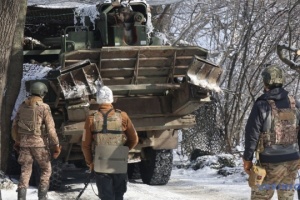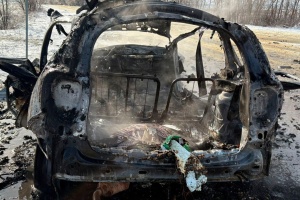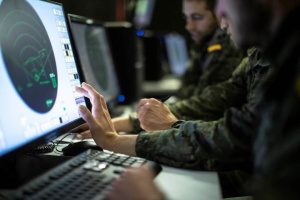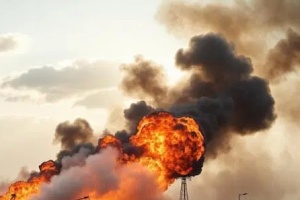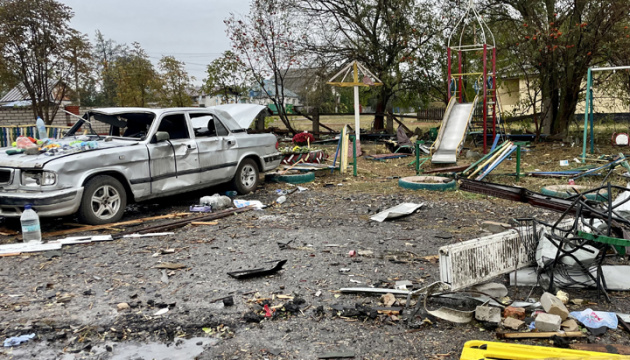
Hroza: will village where Russia killed every fourth person recover?
The missile attack on the village of Hroza was one of the bloodiest during the Russian invasion. The village, which had survived a seven-month occupation, shuddered at the scale of the grief that came to almost every family. Every fourth resident of Hroza was killed when a Russian Iskander struck a cafe where people had gathered after the reburial of Andriy Kozyr, who died in the first months of the war. How will Hroza recover from this experience? Read and watch in the new special project by Decoding Ukraine.
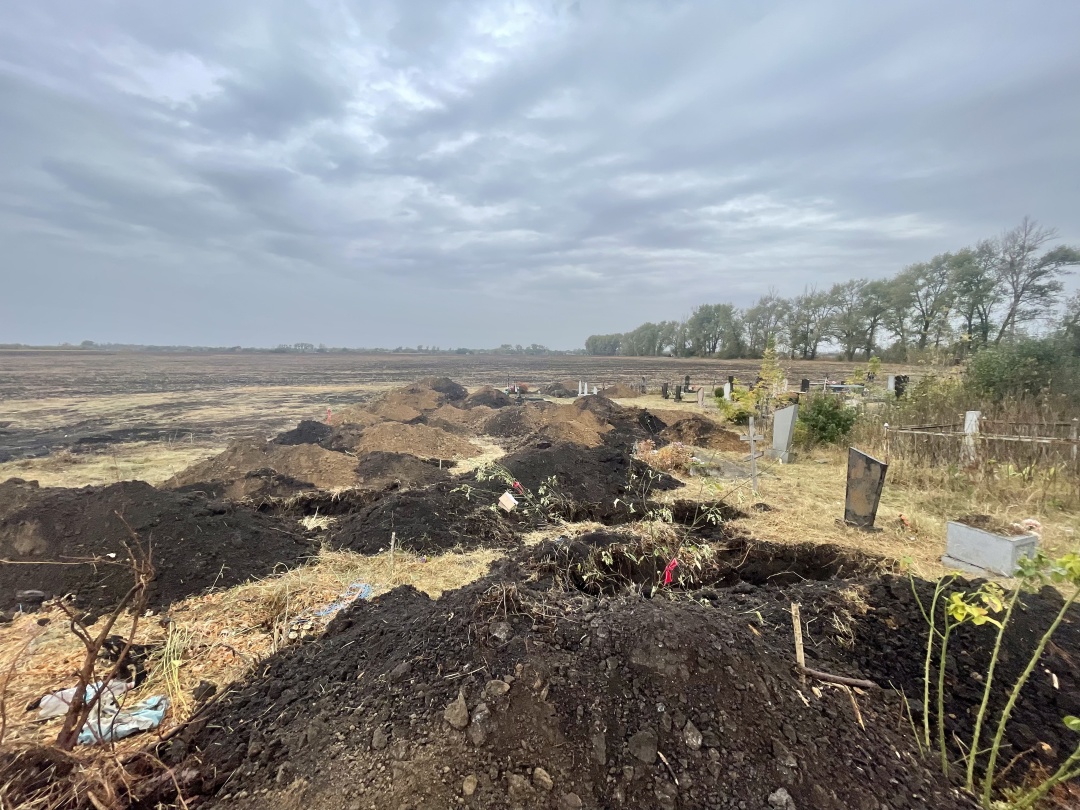
Heavy drops of rain fall on the freshly dug ground at the cemetery in Hroza and erase the handwritten signatures on the cardboard plaques: "Panteleev family, 4 people," "Reserved, Mukhovaty, 3 people," "Hrib, Kozyr, Chegodaeva, 7 people," or simply "Reserved." The first funeral of the victims of the Russian missile strike was scheduled for 15:00 on Saturday, October 8, but there was a delay at the morgue in Kharkiv, and relatives and friends of the couple Tatiana and Nikolai Androsovich are waiting for the bodies to be brought by a funeral car.
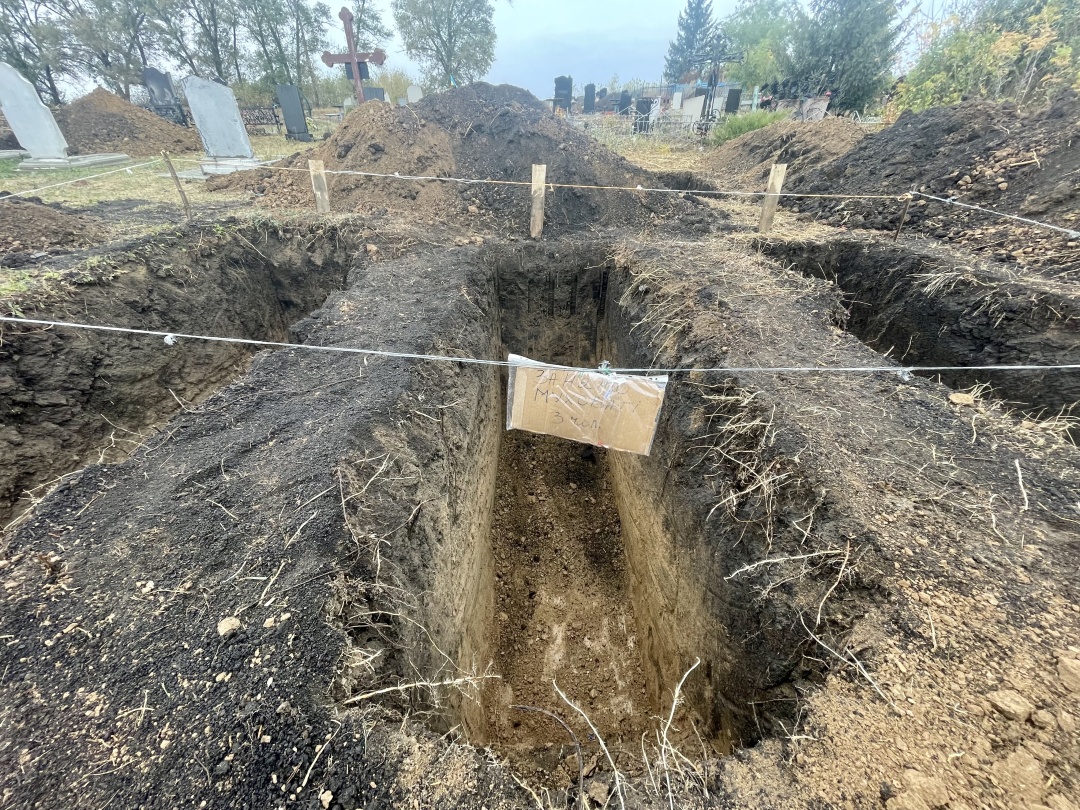
At least 23 new graves have been dug in the cemetery, and while we wait, we can hear a shovel hitting a root as workers continue to work, clearing the way for new ones.
On October 5, at least 59 people were killed when a Russian Iskander struck a local cafe where more than 60 people had gathered for Andriy Kozyr's wake. However, the strike was so severe that not all of the bodies can be identified, and some have nothing to bury. [This work was completed only on October 12. One of the victims, a 60-year-old man, was identified by forensic experts from 20 body parts.]
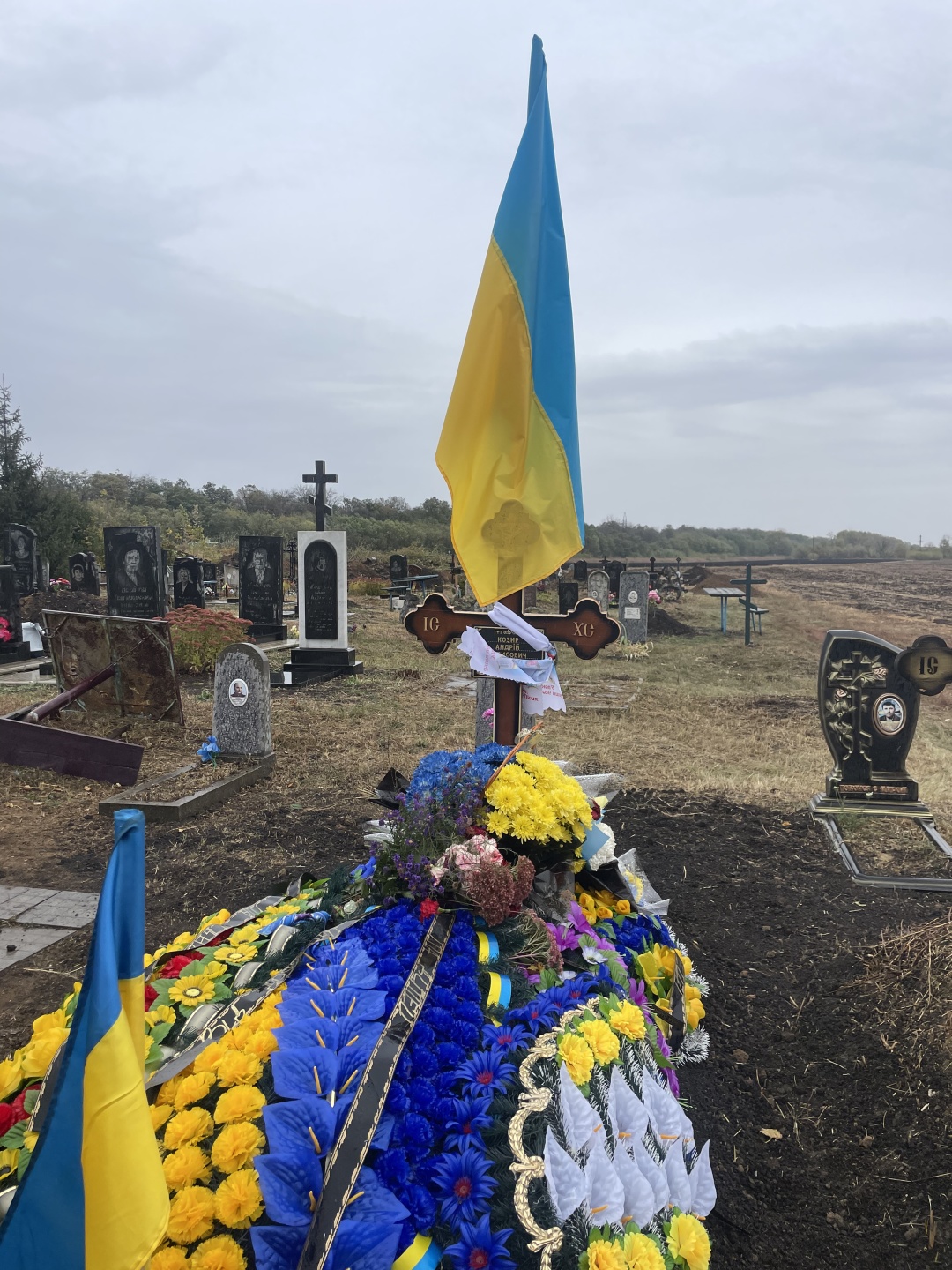
It is very gloomy around, and the dampness chills even the villagers who are used to working outside. Apart from fresh flowers, the only bright spot in the gray that descends on the village in the evening is the Ukrainian flag flying on the fresh grave of Andriy Kozyr.
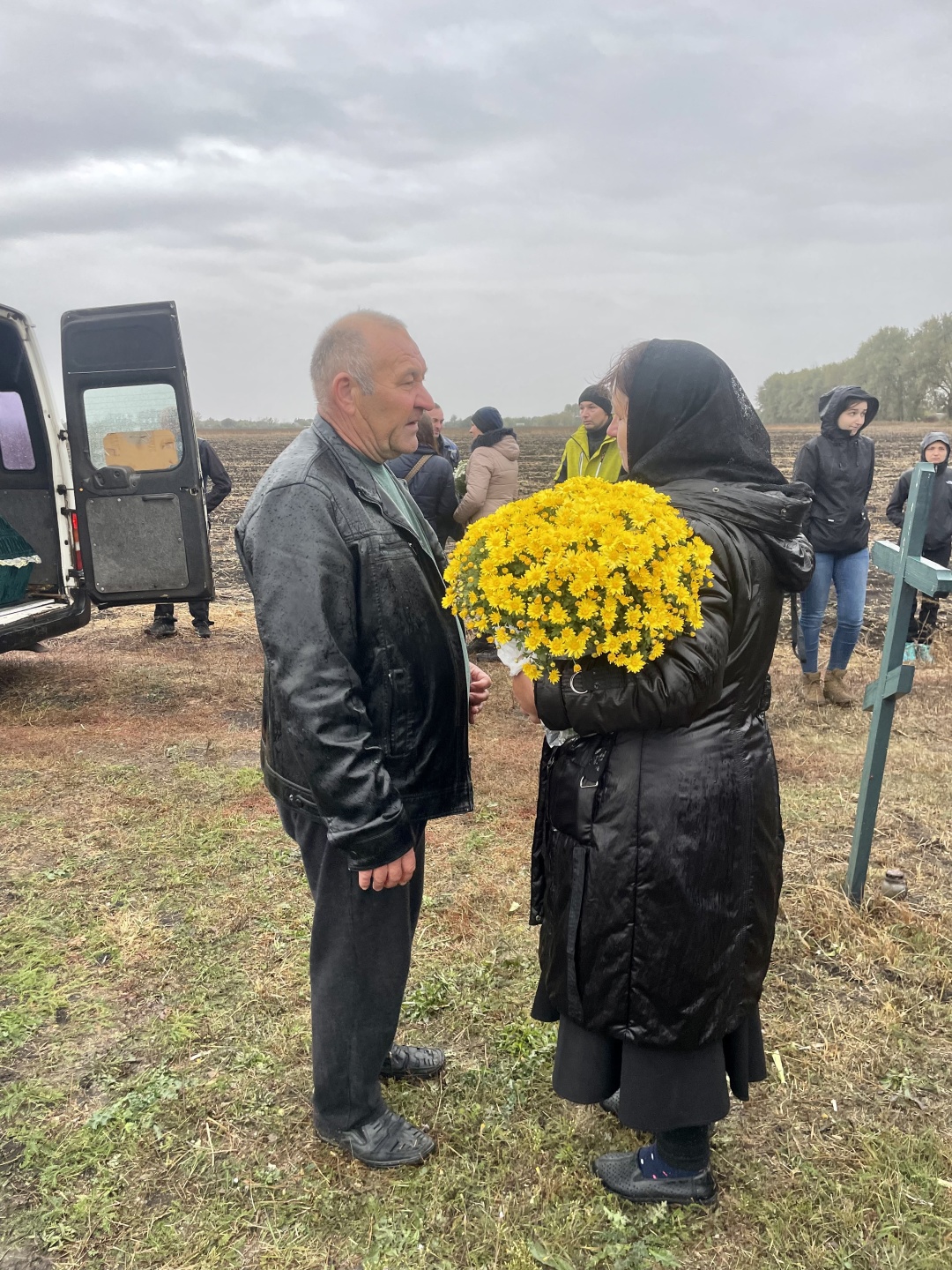
One of the men at the cemetery is Mykola Androsovych's brother Petro, who is here with his wife Halia. Halia says that their children also came to their father's funeral: daughter Kateryna from Slovakia and son Dmytro from Kyiv. Halia and Petro didn't go to the cafe that day for the wake because the family was doing the housework, and they ran out of the house when they heard the terrible explosion.
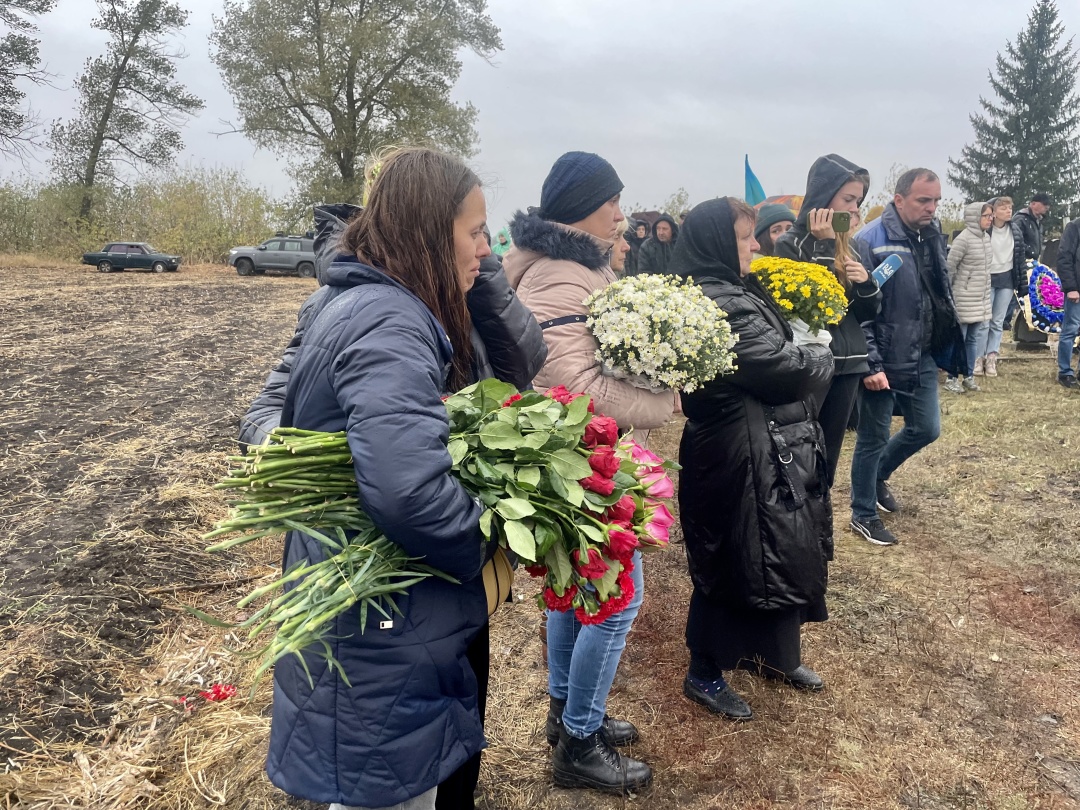
A white funeral minivan arrives at about five o'clock, and two coffins in dark green drapery are visible through the open doors. Men are preparing a place for the funeral service. Daughter Kateryna holds large armfuls of red roses and carnations: "I talked to my mom in the morning, she said I would come, find out all the news and call you back to tell you... You see, she didn't call back..."
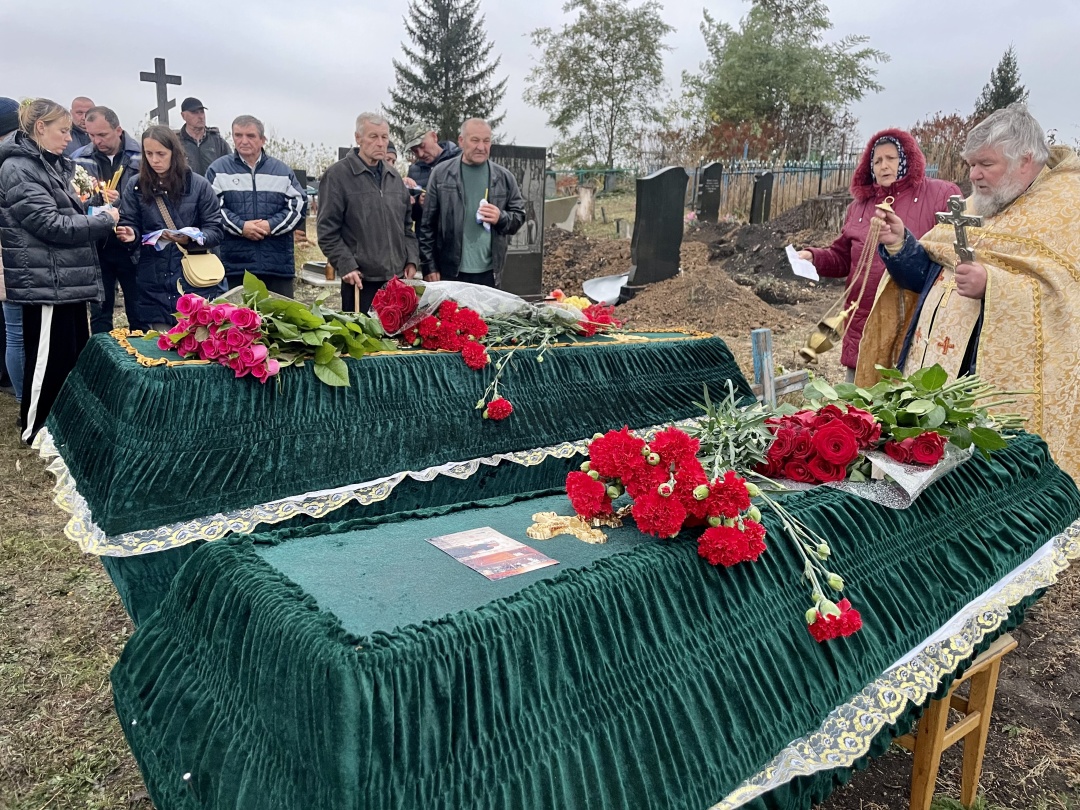
The funeral service begins, and Mother Tetiana helps a local priest from Shevchenkove - Hroza has no church of its own, nor a school. The destroyed cafe and the nearby shop were almost the only place around which life in the village revolved. Now they will have to "go to the district" for everything, i.e. to the neighboring Shevchenkove.
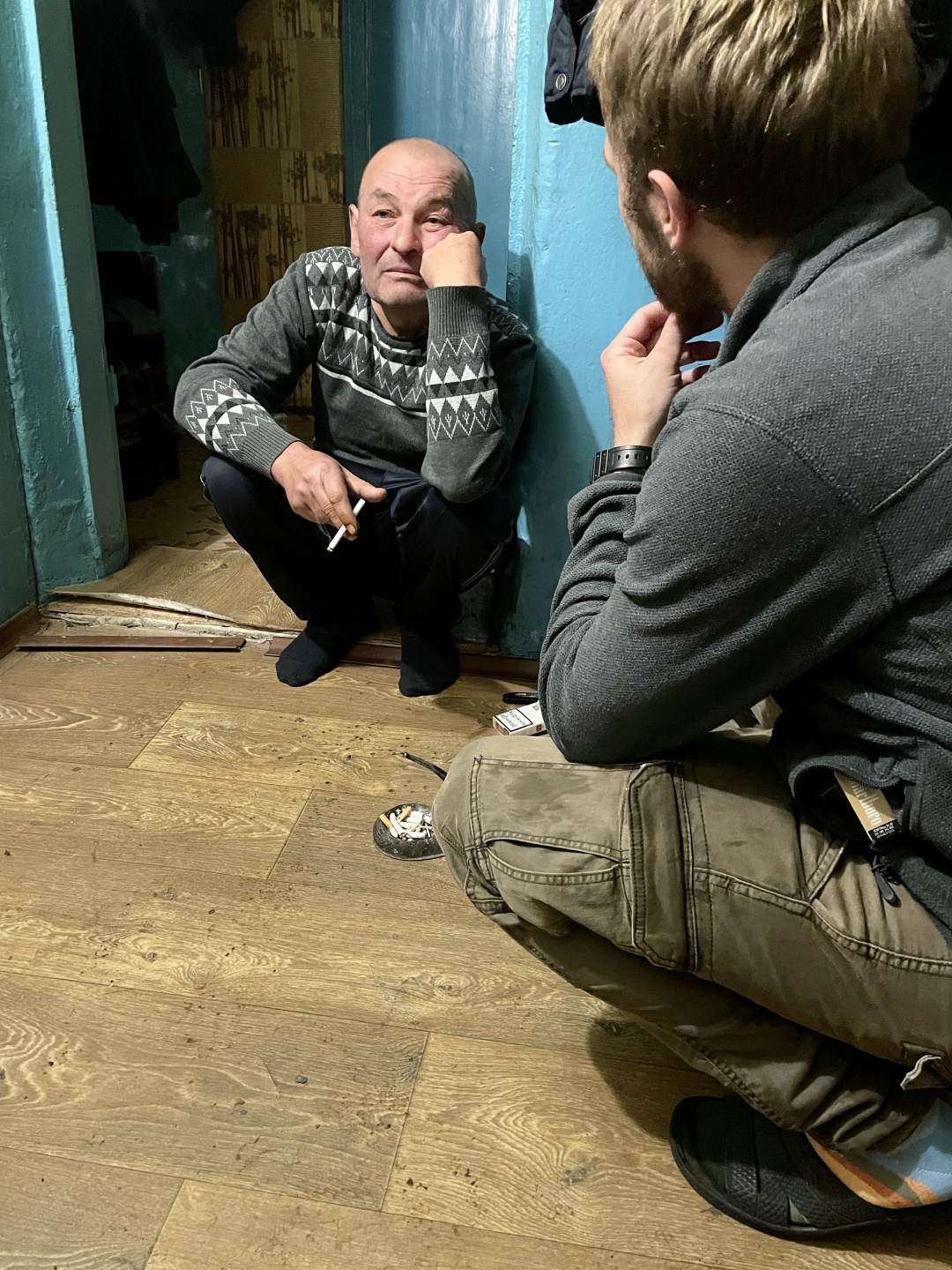
At half past six, everyone starts to leave. There will be no wake, because people are now afraid to gather in groups, and the time is not right. We go to Halina and Petro's house. They live with their adult son Mykola in the part of the village that is behind the dam. While his wife is busy in the kitchen, Petro lights up a cigarette and tells us the details of that day: "Halia also said, let's go... We didn't go, and thank God."
The family was actually saved by a cow. At the time the meeting in the cafe was scheduled, they had just brought the cow home, had to milk it and take it to the garden, and that's when the attack happened. At work at the communal farm, one of the guys told Petro that they should build a monument to the cow for saving them. Petro does not know how Viktor, whose wife died, will live now.
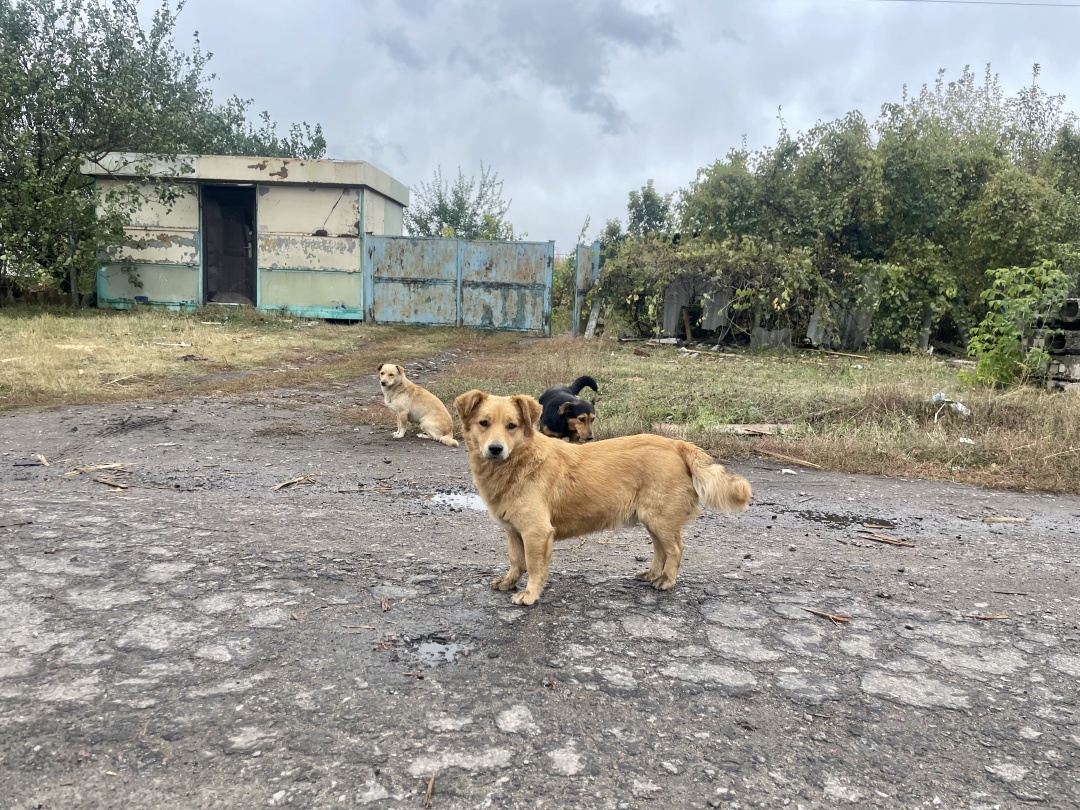
We go with Halia to the neighbor across the street. Viktor's wife Zoia died, and he doesn't know how to milk. Halia skillfully milks two cows, collecting half a bucket of milk from each. Viktor says that he will not sell the cattle, because "I have to live, this is my piece of bread," and waves his hand in the direction of the cow.
We return home - the family offered us a place to stay so that we wouldn't have to go to the city in the dark. For dinner, we have crushed potatoes, duck, and their own сanned vegetables and fruits, all from their farm. They buy only bread and sugar, and volunteers help with the rest. They started going to the village a year ago - on September 7, 2022, Hroza was liberated from Russian occupation.
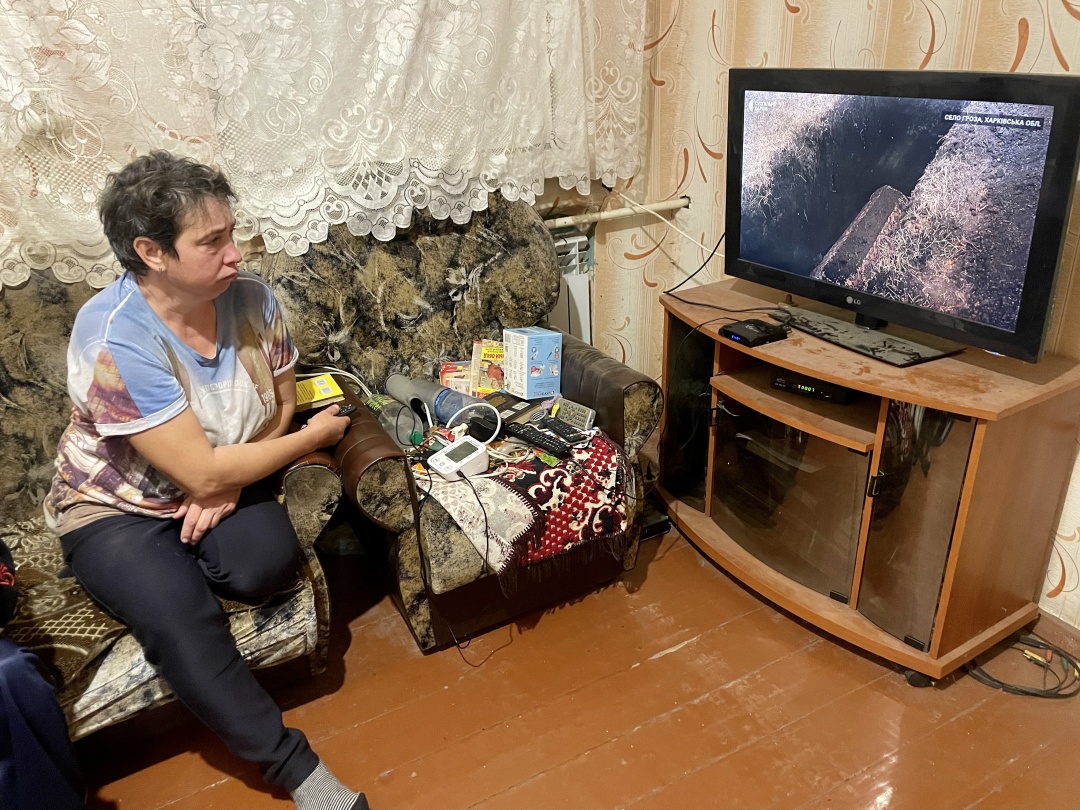
While we are having dinner, we remember Mykola, who was killed, Tetiana, and all those whose lives were taken by the attack on the cafe. Halia lists the families who are now grieving for their losses, including the Kozyr family, where four children have lost their parents. It is completely dark outside, the street lights are not on anymore and there is not a single person on the streets, only the rain continues to fall. From the kitchen we move to the living room, Halia turns on the TV and everyone watches the footage from today's funeral. They recognize their relatives and discuss the events of that day over and over again.
In the morning, we go to the same cafe in the center of the village. In fact, it is one building with half of it used as a shop and the other half as a cafe. Opposite is a playground - it was there that the bodies that were found under the rubble were taken out. Now there is a memorial place where people bring candles and flowers.
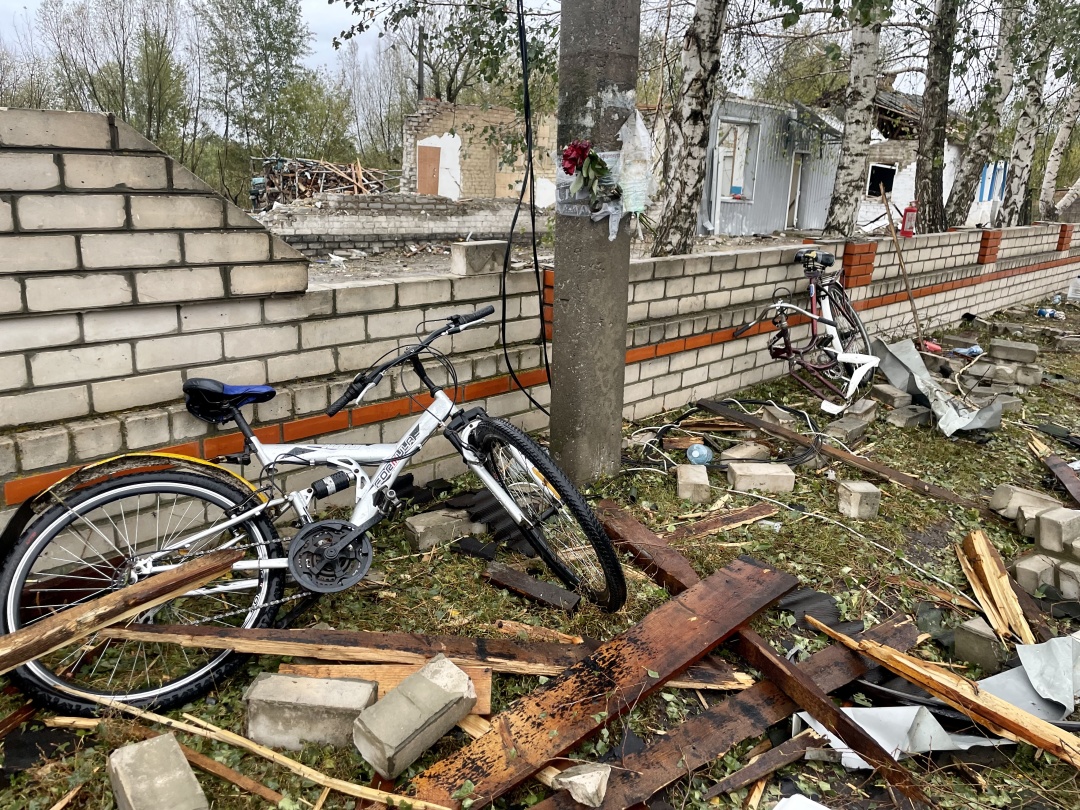
The building is completely destroyed, only a few walls remain. The place where the guests were sitting at the table is marked by a rocket crater. When the rescuers and investigators were working, they were picking through the rubble to find the remains of the bodies - now all that is left of the building is piled up in a large heap nearby. There are two broken bicycles near the fence, probably with no one else to pick them up.
We enter the yard across the street, where Vasyl and Liuba live. Liuba invites us inside. It is clear that she wants to share her pain. She tells us about the horror she saw on the day of the attack, about the parts of human bodies that were taken out of the rubble, about how many people died, and about Andriy Kozyr's family, which was almost all killed by a missile.
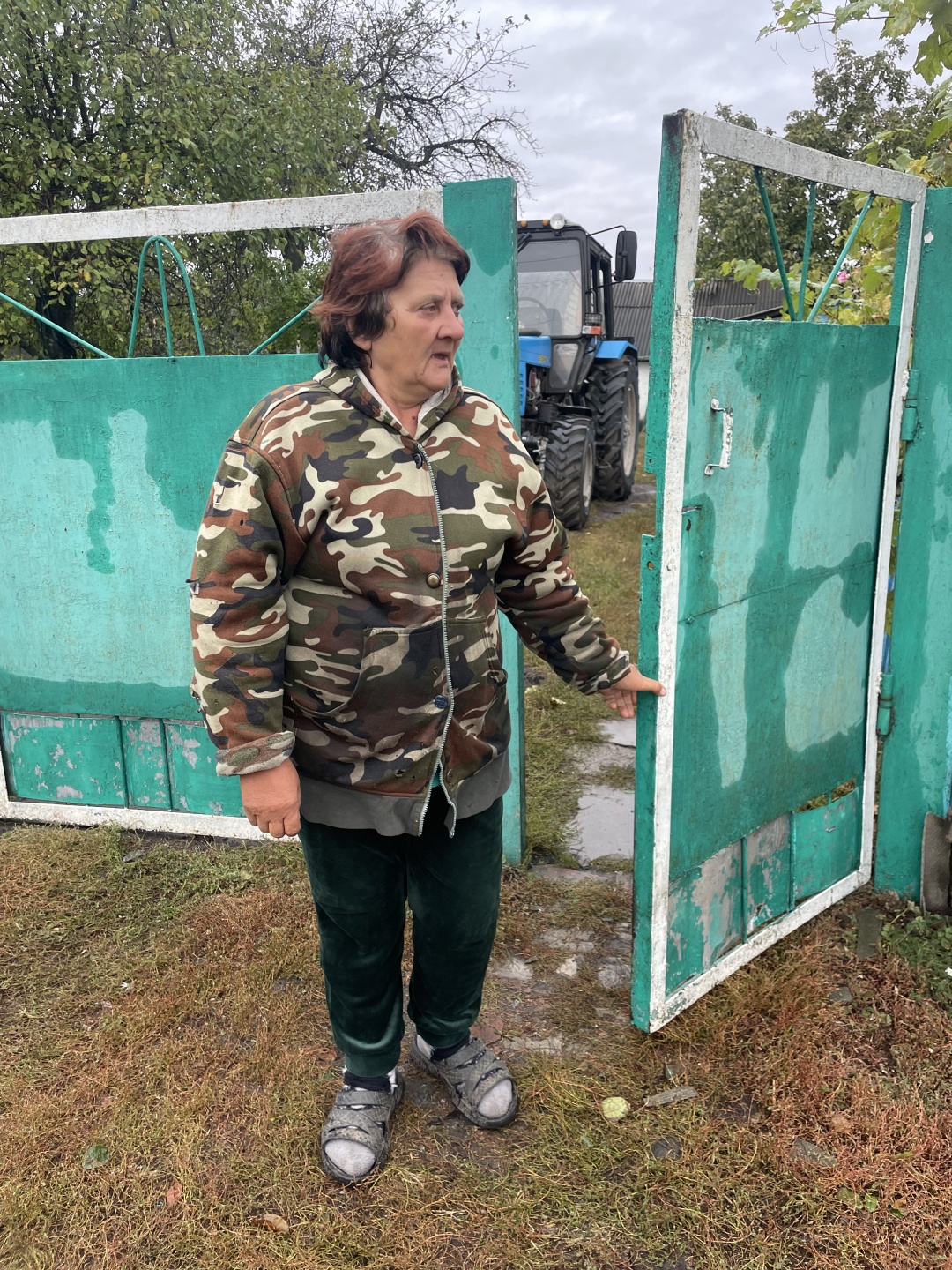
We ask who could have provided the Russians with information about the place and time of the memorial event. After all, they struck at the exact time when people entered the cafe. Some of them were even still standing on the steps, and now they are in hospitals in Kharkiv with injuries. Liuba says that there were collaborators in the village who helped the occupation administration during the occupation. Some even went to work for the police. She knows this for sure because her own son, an ATO soldier, was held in captivity. She says that now she hardly ever goes out to avoid seeing the "waiting men" who were waiting for the Russians. He adds bitterly: "Now maybe they won't wait anymore, who knows..."
With heavy hearts, we go to the Kozyrs' house, where three minor children were left without parents: Nastia, 10, Dima, 15, and Daria, 17. We are met by their grandmother Liubov, and soon their grandfather Valeriy comes home. Liuba shows us photos and videos of her daughter Olichka, as her husband and everyone in the village called her, photos of her grandchildren, a video of the youngest Nastia making pancakes while her mother Olia teaches her.
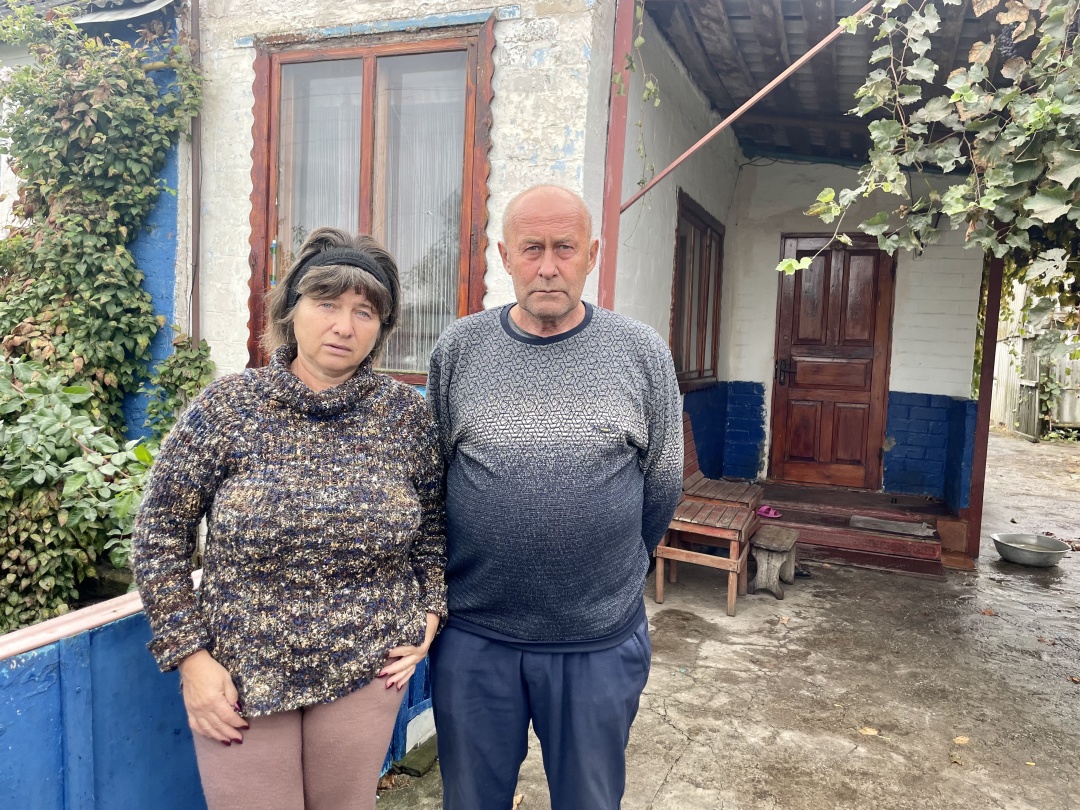
Liuba finds it difficult to talk, she often cries, remembers her children, matchmakers, her friends, all of whom died that day. Her husband did not let her into the cafe so that she could remember the children as they were - beautiful and happy. Then he got on his bike, rode there, came back again in 20 minutes and said: "Liuba, our children are not here, I saw them." Liuba said: "The children are holding up, but the little Nastenka is fine during the day, but in the evening she asks for her dad and mom."
* * *
As a result of a missile strike on the village of Hroza in Kupyansk district, 6 children were left orphans. Two young sons of Maksim and Alina Sirokurov, the eldest son of Olga Pashchenko, and three children of Olga and Anatoly Panteleev were left without parents.
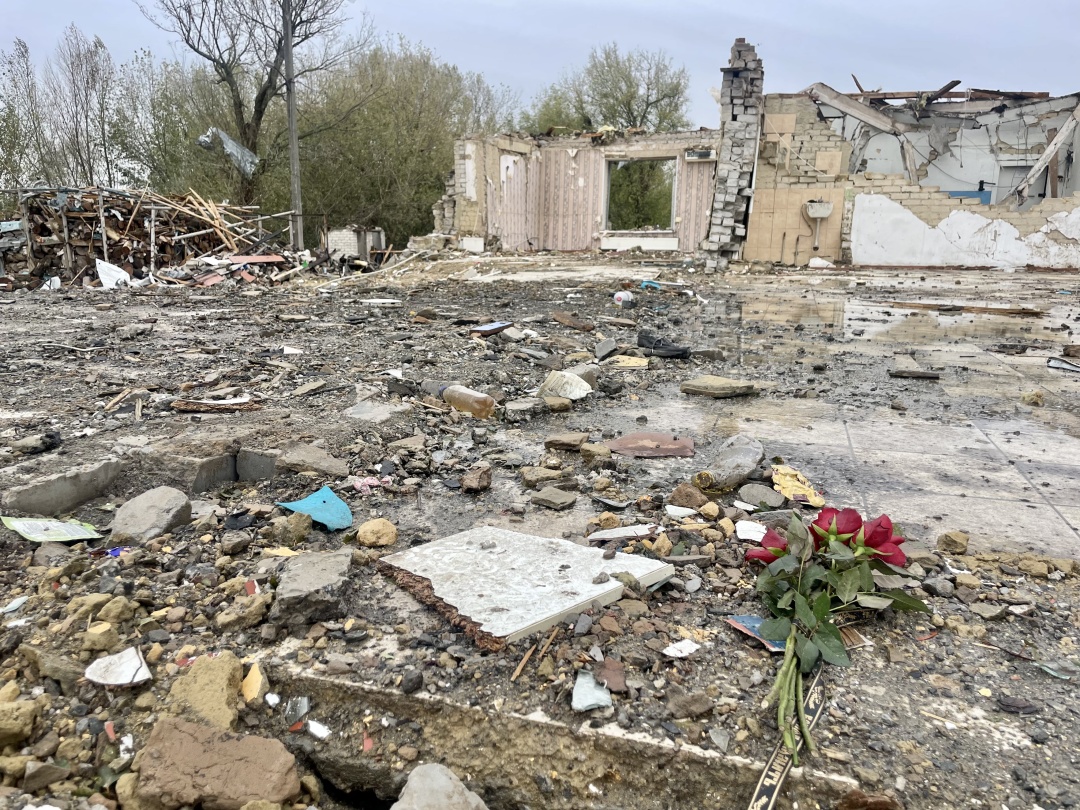
The attack on the cafe killed 59 people. The identification of the bodies is ongoing. Several people are still missing. Before the war, the village was home to approximately 350 residents.
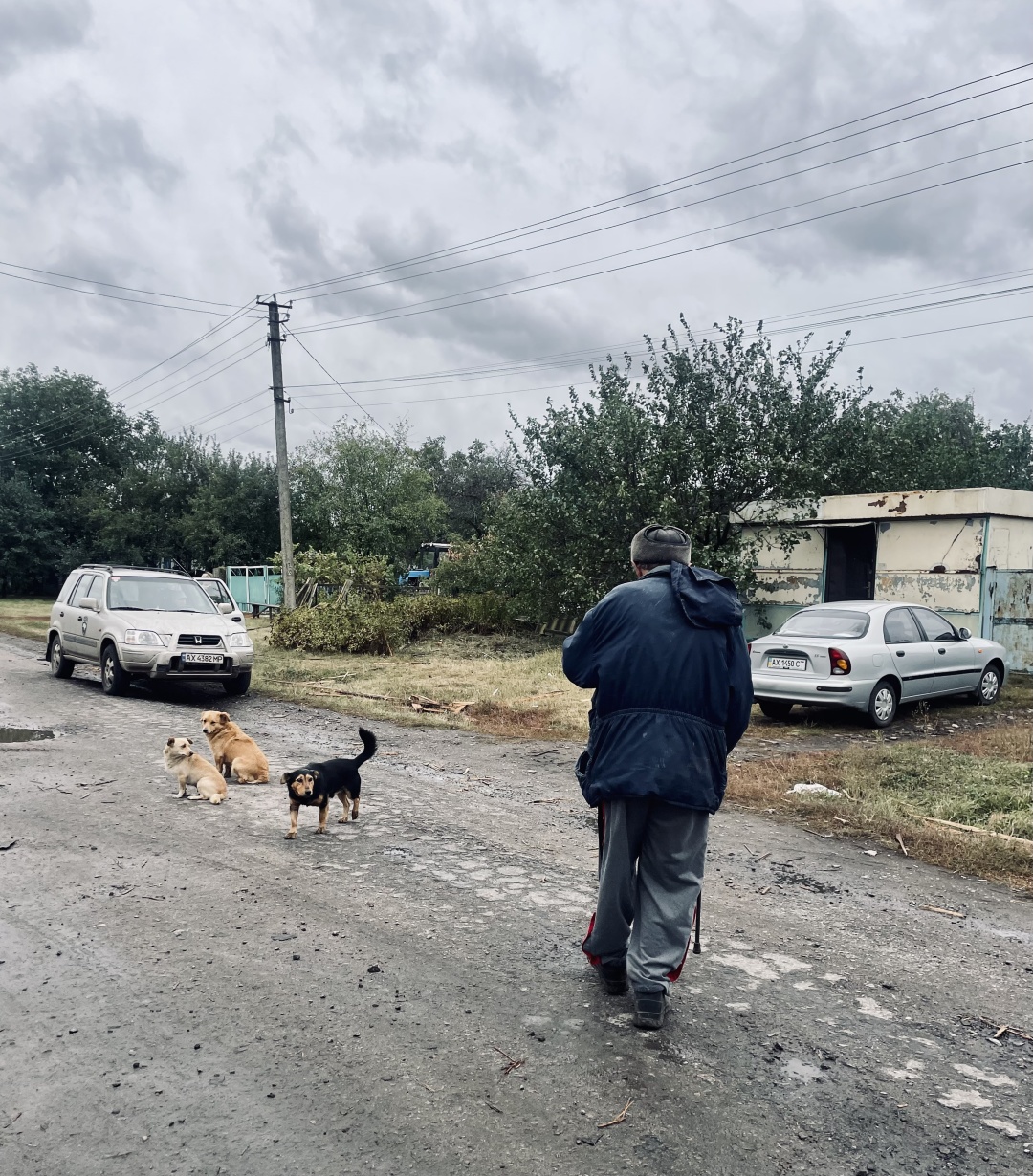
According to the SBU [Security Service of Ukraine], two local residents are suspected of guiding a Russian missile at the cafe - 30-year-old Volodymyr Mamon and his younger brother, 23-year-old Dmytro Mamon. During the occupation of the village, they went to work for the Russians, and then fled to Russia. According to the special service, in early October, the brothers began collecting information about the preparation of the reburial of Andriy Kozyr and, having learned the exact address and time of the funeral, passed this information to the Russians.
Maria Avdeeva, Artem Lysak
Photo by Maria Avdeeva

